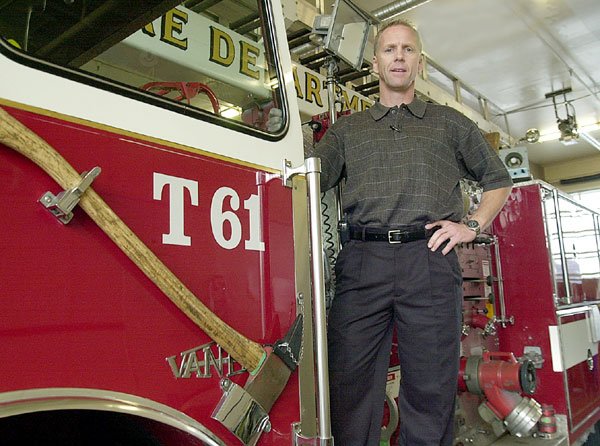The City of Gilroy is racking up thousands of dollars in legal fees as it staunchly resists settling a year-old lawsuit from two firefighter chiefs who claim they were cheated out of overtime pay, according to court records.
The City is preparing to fight the accusations from retired Battalion Chief Edward Bozzo and current Battalion Chief Phillip King to the end, and has requested to go before a jury trial at the end of the year – despite warnings from the plaintiffs’ lawyer that if the City loses, they will be on the hook for more than $160,000 in attorney fees.
“I don’t think the City should pay those two guys a dime,” Councilman Perry Woodward said of the lawsuit. He declined to expand further.
Combined with damages and the original back pay complaint, the overall lawsuit could cost the City $230,000 – or more, according to Carol Koenig, a San Jose-based labor law attorney representing Bozzo and King.
“If the City loses the case, they would be liable for all attorney fees. I have reminded them of this many times,” she said.
Bozzo and King assert in their complaint the City broke federal labor laws by classifying King and Bozzo as employees exempt from overtime, even after putting them on City-mandated furloughs during the belt-tightening grip the Great Recession had on the City in 2009.
Koenig estimates Bozzo and King were cheated out of being paid for more than 200 hours of work each, for a combined monetary loss of $30,000, which works out to $150 per hour.
The suit, which was filed in May 2012, has brought on several conferences before Judge Howard R. Lloyd in San Jose. None of those meetings brought the plaintiffs or the City any closer to an agreement, according to court documents.
Because Bozzo and King were furloughed four hours per week from 2009 to 2011, they had a 36-hour work week – at least in theory, their complaint explains. But the pair asserts they still worked up to 56 hours per week, and maintain the City should reimburse them for those overtime hours.
According to court records, the City firmly believes Bozzo and King’s claims are baseless. As managers – even with a 9 percent pay cut – the two were salaried employees and exempt from receiving overtime, according to the City.
The complaint caught the Council by surprise when it was filed in fall 2012, and left Council members baffled that two “well compensated” City employees would turn around and sue them, several Council members told the Dispatch in November.
Edward Bozzo – who had an annual salary of $167,386 – now collects a monthly pension of $10,800, which he will collect for the rest of his life. King’s current salary is $180,232 annually.
Koenig is indignant that the City has refused to settle.
“I think the City made a mistake and they should have admitted they made a mistake a long time ago,” she said.
Back in 2012, King and Bozzo asked the City for overtime money they believed was owed to them, $22,000 total, Koenig said, and the City turned them away. Had the City just paid them off, they would not be in the legal mess they are now, she said.
“The whole process has been totally unnecessary,” she said. “I think Gilroy has better ways to spend their money. If the City gave us a reasonable settlement offer we would take it. But the last I heard, they do not plan to do that.”
While Koenig didn’t know the exact amount, she said that King and Bozzo’s attorney fees are up to $60,000 and will continue to amass the longer the legal battle goes on. She combined that $60,000 with the City’s attorney fees to arrive at her $160,000 rough estimate of what the City could owe in fees alone – not to mention $60,000 in damages and the original $30,000 complaint.
Both parties have attested they are fighting their side on a matter of principle. Woodward has told the Dispatch in the past that “any time you settle a frivolous lawsuit you embolden others who might file similar claims,” while Koenig said this week, “at this point, it’s a matter of principal,” in her answer as to why Bozzo and King have continued to press the issue in court.
Federal law requires employees who are classified as salaried to be compensated at least $1,971 monthly. Since Bozzo and King were making almost six times that amount, the City believes they are not entitled to overtime benefits.
Eight months ago, the City’s legal fees from Brian Walter, a private attorney from Los Angeles, were about $13,000. Now, LeeAnn McPhillips, Gilroy’s human resource director, said the City’s legal fees have amassed to $81,996, plus and $6,712 in staff hours dedicated to reviewing the case.
Mayor Don Gage and Councilman Dion Bracco declined to comment for this story.
“All Gilroy employees faced concessions during this time period and it is unfortunate that two highly compensated managers find it necessary to initiate a legal battle that forces the City and its taxpayers to incur defense costs,” McPhillips said.












